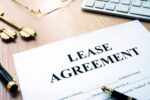Why Hire An EXCLUSIVE Buyer’s Agent

An exclusive buyer’s agent (EBA)is hired to help you with a big monetary decision, which is also a big personal decision. There is a wide variety in the quality of that fiduciary (financial) advice you will get, depending on the agent you choose.
An EBA is required to help their client get the best price and the best terms for the property that they want to buy. They are bound to help protect their client’s financial interests throughout the buying process.
How does buyer brokerage work?
The company – traditional offices:
An agent who works with a buyer — and has a contract to give that buyer representation — is a buyer’s agent. The vast majority of buyer’s agents work in companies alongside other agents who represent sellers. In those companies, most work with both buyers and sellers. Whenever a buyer puts in an offer for a house listed by that company, the head of that office is a dual agent. Both agents want the highest price for the Seller …they are sub-agents of the Seller.
The company – exclusive buyer brokerage:
That’s why exclusive buyer brokerages are different. They are a small number of companies who don’t help sellers get the highest price for their house or condo. Instead, exclusive buyer’s agents (EBAs) work in firms that only help buyers buy properties. Exclusive buyer’s agents have no colleagues in the office who are trying to sell any particular house or condo. They are not invested in you buying any particular home; they want you to use your money to get what works best for you.
How do exclusive buyers agents help buyers?
Because EBAs don’t list properties for sale, they become buyer experts. They work only in the financial interests of buyers, so they can think clearly about how to get the best place for the best price.
They become experts in what are typical good points and bad points of local housing stock and neighborhoods. They can tell you whether the house you like is typical in your price range or if it is really special. They are free to share negatives, too, to help you avoid problems later.
In order to be fiduciary advisors, EBAs provide a buyer-centered view of the current value of a property you might want to buy. EBAs provide a comparative market analysis to give you an idea of what the property is worth before you decide on a price. Based on the market analysis, and the potential competition for the property, and how much you like it, an EBA will help you decide on a negotiation plan.
Because EBAs work only with buyers, they develop a reputation in the real estate market for having exceptionally prepared buyers.
Because EBAs work with buyers only, they develop a network of lenders who get your mortgage done on time at a competitive price, inspectors who look long and hard for defects in the property, and attorneys who will protect your rights.
What should a buyer ask an agent before hiring them?
- In the past year, how many sellers have you represented? How many buyers have you represented?
- If you run into an unusual situation, who do you go to for advice?
- Tell me about a recent success.
- Tell me about a recent problem with a house and how you handled it.
- Can I have three references?











 Kim N. Bregman
Kim N. Bregman